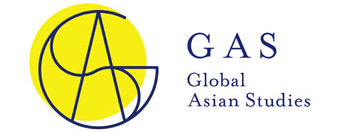Networking Research Institutions of Japanese Studies
Professor Shigeto Sonoda (Institute for Advanced Studies on Asia and Graduate School of Interdisciplinary Information Studies, The University of Tokyo)
On March 19, I participated in the 6th East Asian Forum for Japanese Studies. The venue was Astor Hotel in Tianjin. The history of the hotel can be traced back to 1863 when it was opened in the British concession of the time. I had an opportunity to visit the hotel during my first trip to Tianjin in Nov. 1984, so the March visit was my “sentimental journey” after more than thirty years.
Prof. Xu Yi-ping of Beijing Center for Japanese Studies in China and Prof. Yi Kang-Min of Hanyang University in South Korea discussed with the Japan Foundation to establish this forum, which has been changing meeting venue and research topic every year for exploring the Japanese studies in the age of internationalization. As representative of Global Japan Studies program, I was invited to the 6th forum and obtrusively joined it.
Participants exchanged opinions with each other on many issues at the forum. Here I want to introduce two issues that particularly impressed me.
First, in contrast to research institutions and academic organizations on Japan studies in East Asia, there is no corresponding institution or organization in Japan. How to think about this gap?
In general, development of scholarship takes the form of “differentiation” rather than “integration.” In Japan, there are a large number of people studying “Japan” and they have created different research institutions and academic organizations according to their respective discipline, methodology, and research theme. Out of this situation the need to create one single organization on “Japan studies” has not emerged. Rather, it is natural to become increasingly focused and specialized on specific themes.
In contrast, Japanese studies overseas in many cases, East Asia included, cannot cover all the research fields. Researchers thus usually cover wider research area than their counterparts in Japan. Moreover, when looking at “Japan” – an object of area studies – from a bird’s-eye view, an integrative perspective is usually emphasized.
This divergence creates difficulty for research institutions in Japan to develop stable collaborative relations with institutions in East Asia. Differences in research themes, topics, and approaches naturally necessitate different partners. It is difficult for specific research institution or academic organization in Japan to develop long-term partnership in East Asia. Beyond joint short-term projects, it is not easy to find rationale to connect these two.
Second, related to the first point, “deep” and “focused” research in Japan is often considered to be superior to research in East Asia.
Some forum participants referred to a “complex” they felt when coming to Japan to conduct research in Japanese. When “deep” and “focused” Japanese studies are considered superior, those who excel at Japanese language can easily enjoy advantages. If this view becomes dominant, a guiding-versus-guided relationship is assumed between Japanese scholars and foreign scholars. Equal partnership is difficult to grow out of such an assumption.
It is certainly insufficient if researchers overseas conduct and disseminate research just in their own languages. Scholarship deepens only when researchers in different languages learn from each other.
The question is, then, how can we solve these two issues, or difficulties? I don't have a panacea but I believe that the only solution is to create network among researchers and institutions in East Asia so that we can identify and make the most of our own strength. We should keep on exchanging ideas by mixing Japanese with English and Asian languages to wait for the “chemistry” to happen. In our efficiency-first age, isn’t it a fascinating idea to take such circuitous methods? By so doing, won’t we be able to attain our goals which are different from that of the Association for Asian Studies in which exchange of ideas are conducted only in English?
These ideas came up to my mind at the Astor Hotel during my “sentimental journey”.



